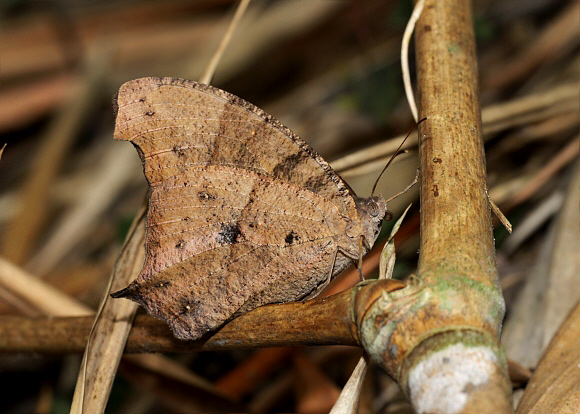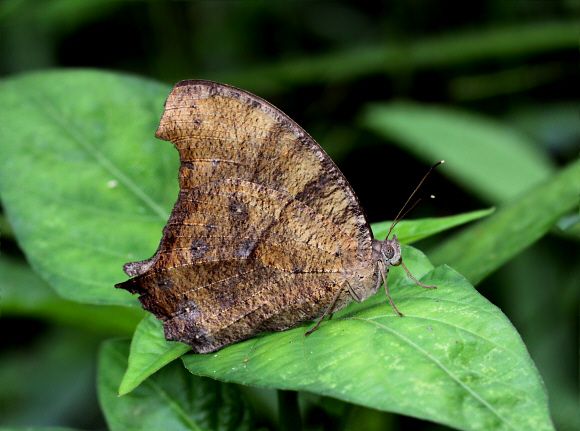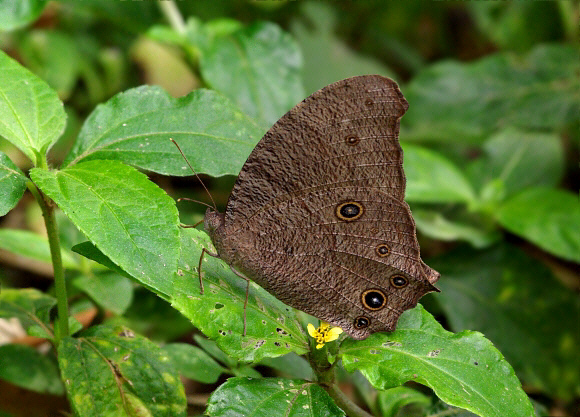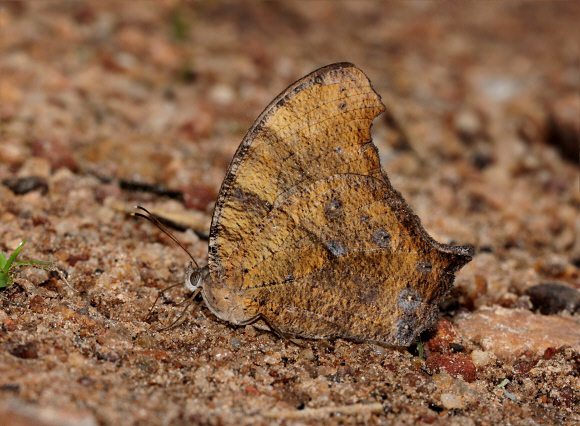
Introduction
Butterflies in the genus Melanitis are commonly known as Evening Browns due to their crepuscular behaviour. There are 12 species, of which leda is the commonest and most widespread.
Melanitis leda is subject to a wide range of variation in the underside colouration and patterning, and exhibits pronounced seasonal dimorphism. The wet season morph is pale brown with numerous dark striations and prominent ocelli. In the dry season morph the ocelli are greatly reduced or may be entirely absent, and the ground colour varies from grey to light brown, mottled with tiny dark dots.
Melanitis leda is found across most of Africa including Madagascar, Arabia, the Indian subcontinent, south-east Asia and northern Australia.

Habitats
Melanitis leda is found in degraded forest, plantations, orchards, parks and gardens at altitudes between sea level and about 800m.
Lifecycle
The larvae feed on grasses including Apluda, Saccarum, Paspalum, Imperata, Panicum, Orzya and Stenotaphrum.

Adult behaviour
The butterflies are normally found singly, when disturbed from their resting places in the forest undergrowth. They fly mainly in the early part of the evening and often enter houses, attracted by artificial lighting.

